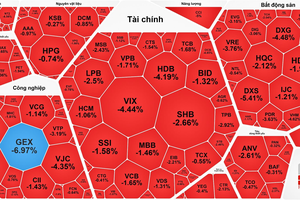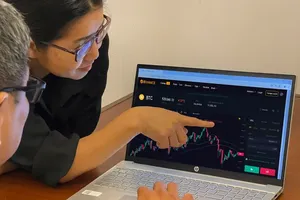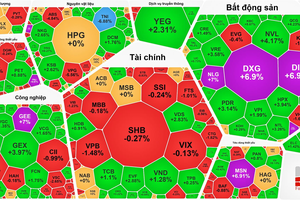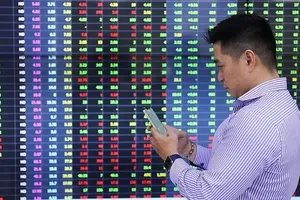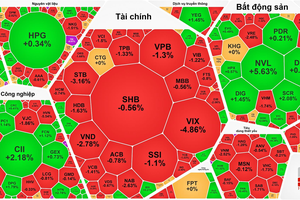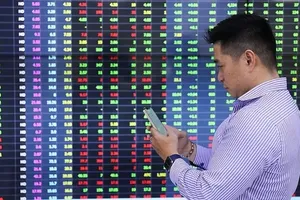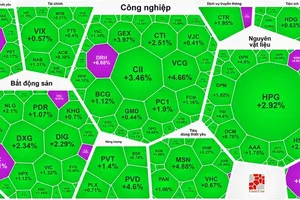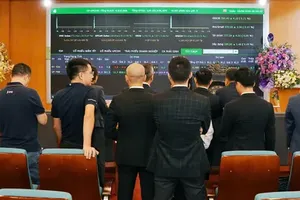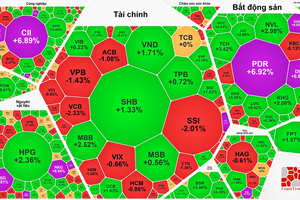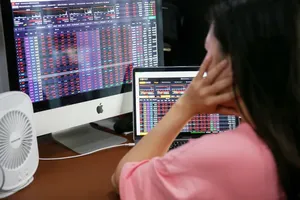Risk from bonds
At a recent annual shareholders meeting of Saigon-Hanoi Commercial Joint Stock Bank (SHB), shareholders approved of a plan to issue international bonds of total value of US$ 500 mn with a term of three to five years under the Euro Medium Term Note program, and to list these international bonds on the Singapore Stock Exchange after the issuance was complete.

Actually, the trend of issuing international bonds of the NH industry has risen since 2019, when SeABank consulted shareholders to issue a maximum of US$ 400 mn of bonds to the international market, with maximum expected term of five years. TPBank consulted shareholders on the issuance of US$ 200 mn of tier 2 capital bonds. VPBank aims to issue about US$ 1 bn of bonds to the international market and by two banks, ACB, and HDBank, who also plan to issue international bonds.
Dr. Nguyen Tri Hieu, an expert in banking and finance, said that banks tend to issue international bonds in recent years because the interest rate of international bonds is much lower than that of issuing bonds in Vietnam. This channel helps banks diversify capital mobilization sources, limit the dependence on domestic foreign currency mobilization, and supplement foreign currency sources for business activities.
Mr. Hieu said that, if the issuance is successful, the domestic financial institutions will also increase their prestige and brand name in the global market and bring Vietnam larger integration into the world financial system. When a bank wants to issue an international bond it is required to standardize finance and governance and improve transparency to meet the requirements of information provision and asset quality of international organizations.
Similarly, some experts also said that cheap money is plentiful now because countries have sharply cut policy rates, at the same time a series of large scale stimulus packages have been pumped into economies to cope with the impact of the Covid-19 pandemic. This is also an opportunity for domestic banks and economic organizations to seek cheaper international capital. Another good sign is that Vietnam has recently been raised to positive level by credit rating agencies such as Moody's, Fitch Ratings, which is the foundation for increasing capital mobilization in the international market.
Cheap capital
Mobilizing international bonds is not only in pink areas as analyzed above but also in many shades of gray. Cheap capital is plentiful in the international market, prospects have been upgraded, but national credit ratings and Vietnamese banks are still at a level of investment credit. Foreign investors always look at credit ratings to assess the level of risk when making decisions about interest rates or even investment decisions.
Therefore, many experts believe that Vietnam and many banks are being raised by international credit rating organizations. This is their only means of mobilizing more capital, but the cost of debt or interest rates will not change significantly from before. Besides, the cost of issuing international bonds is often very high. When issuers want to issue securities in the international market, they have to organize a roadshow to promote their bonds, while there is no guarantee they can even issue them successfully.
In fact, from the goal to the completion of the issuance of international bonds is not an easy journey. For example, in 2019, several banks set a target to issue international bonds, but only VPBank successfully issued a total value of US$ 300 mn, at interest rate of 6.25% per year for term of three years. SeABank had moved its plan to move the issuance of US$ 400 mn of international bonds to 2020 instead of 2019 but has not yet implemented. In 2020, HDBank was the only domestic bank to successfully issue US$ 160 mn of convertible bonds to the international market to supplement tier 2 capital in the form of a private placement, with a term of five years and one day, at fixed interest rate of 4.5% per year.
Another noteworthy issue is in the case of successful issuance as international bond issuers also face exchange rate risks. When banks or economic organizations of Vietnam issue international bonds, they will issue in US dollars. When paying debts, they have to pay back in foreign currency. If it falls into a case when the issue is low, but when the debt payment deadline increases, banks have to use more dong to buy foreign currency to pay debts to foreign investors.
This risk is expected to exist in the context of an increase in world inflation, affecting the devaluation of the currency. Thus, when receiving interest rates, banks will also have to bear exchange rate risk in international bond issuance activities. This is the problem that each issuer must take into account. In addition, the issuance of international bonds must be approved by the State Bank of Vietnam (SBV), as SBV is ultimately the foreign currency reserve unit for issuers to repay foreign debts.
